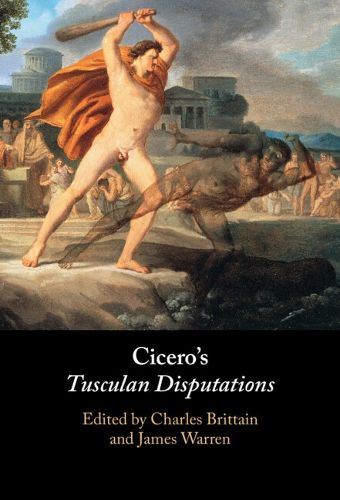Readings Newsletter
Become a Readings Member to make your shopping experience even easier.
Sign in or sign up for free!
You’re not far away from qualifying for FREE standard shipping within Australia
You’ve qualified for FREE standard shipping within Australia
The cart is loading…






Cicero composed the Tusculan Disputations in the summer of 45 BC at a time of great personal and political turmoil. He was grieving for the death of his daughter Tullia earlier that year, while Caesar's defeat of Pompey's forces at Munda and return to Rome as dictator was causing him great fears and concerns for himself, his friends and the Republic itself. This collection of new essays offers a holistic critical commentary on this important work. World-leading experts consider its historical and philosophical context and the central arguments and themes of each of the five books, which include the treatment of the fear of death, the value of pain, the Stoic account of the emotions and the thesis that virtue is sufficient for happiness. Each chapter pays close attention to Cicero's own method of philosophy, and the role of rhetoric and persuasion in pursuing his inquiries.
$9.00 standard shipping within Australia
FREE standard shipping within Australia for orders over $100.00
Express & International shipping calculated at checkout
Cicero composed the Tusculan Disputations in the summer of 45 BC at a time of great personal and political turmoil. He was grieving for the death of his daughter Tullia earlier that year, while Caesar's defeat of Pompey's forces at Munda and return to Rome as dictator was causing him great fears and concerns for himself, his friends and the Republic itself. This collection of new essays offers a holistic critical commentary on this important work. World-leading experts consider its historical and philosophical context and the central arguments and themes of each of the five books, which include the treatment of the fear of death, the value of pain, the Stoic account of the emotions and the thesis that virtue is sufficient for happiness. Each chapter pays close attention to Cicero's own method of philosophy, and the role of rhetoric and persuasion in pursuing his inquiries.